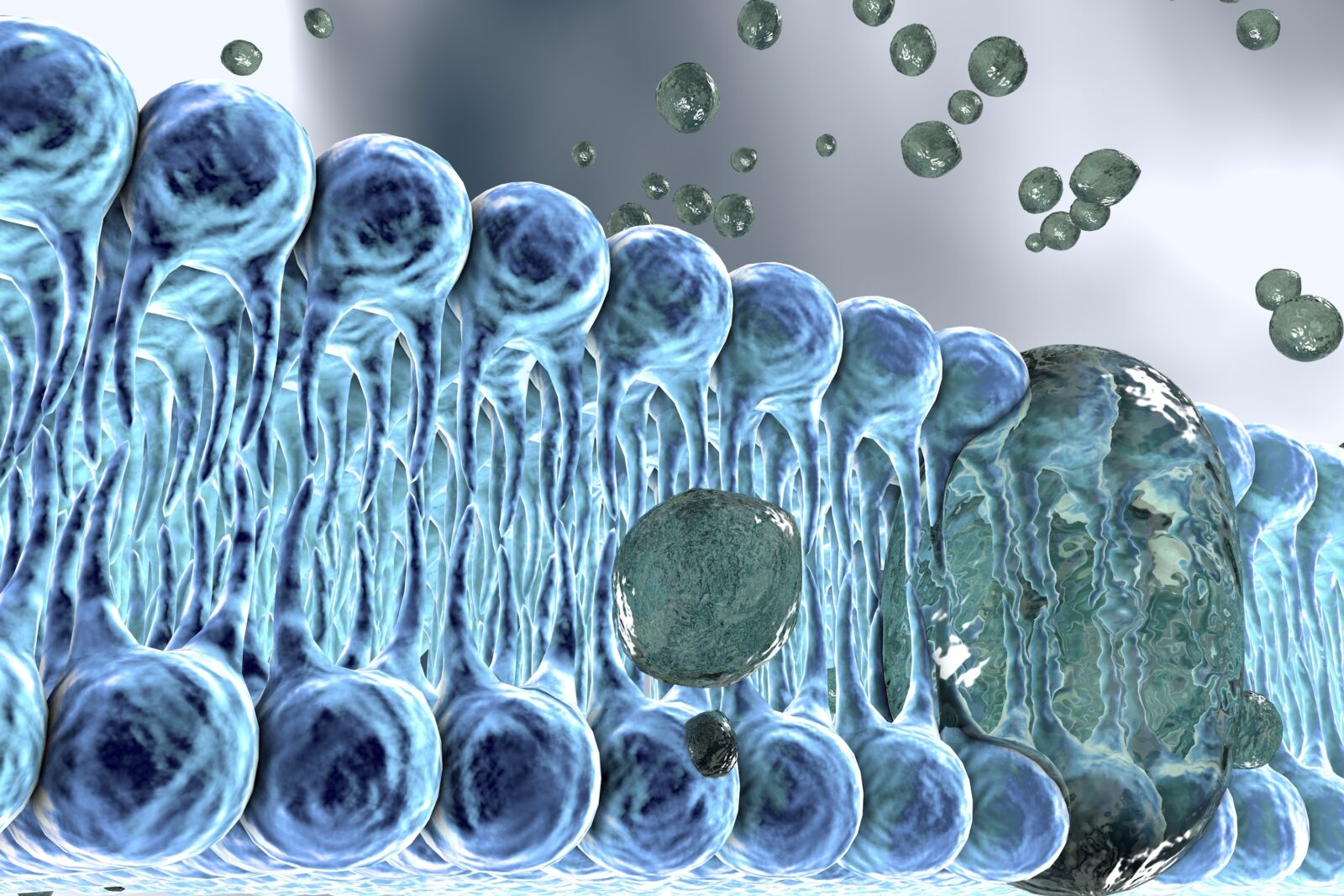


Your Designed Body: “Irreducible Complexity on Steroids”
On today’s ID the Future, Your Designed Body co-author and physician Howard Glicksman talks with host and neurosurgery professor Michael Egnor about Glicksman’s new book, co-authored with systems engineer Steve Laufmann. Glicksman walks through a series of systems in the human body that are each irreducibly complex, and are each part of larger coherent interdependent systems. As Glicksman puts it, the human body is “irreducible complexity on steroids.” How could blind evolutionary processes, such as neo-Darwinism’s joint mechanism of natural selection working on random genetic mutations, build this bio-engineering marvel? Your Designed Body makes the case that it couldn’t. It’s not even close. What is required instead is foresight, planning, and engineering genius.

Debunked Transitional Fossils Just the Tip of the Iceberg
On today’s ID the Future Casey Luskin hosts distinguished German paleontologist Günter Bechly to discuss Bechly’s essay in the recent Harvest House anthology, The Comprehensive Guide to Science and Faith: Exploring the Ultimate Questions About Life and the Cosmos. Darwinian evolution predicts a gradually branching tree of living forms, with one form shading into another over long periods of evolution, with each transitional step almost too modest to notice. Does the fossil record suggest such a pattern? Quite the opposite, Bechly says. Instead the pattern of the fossil record is consistently one of sudden appearance, and evolutionists have yet to successfully construct a single robustly populated series of gradually transitioning fossils that move chronologically from one form to a distinctly different morphology. Darwinism would lead us to expect such transitional sequences all over the fossil record, and yet evolutionists, searching assiduously for more than 160 years, have yet to construct a single one of these. Bechly debunks the hype around some fossil sequences, such as that said to have been assembled from ape-like to human. He explains the difference between “transitional forms” as paleontologists generally use the term and the meaning of the term for evolutionists attempting to defend modern Darwinism. And he and Luskin also discuss fossil forgeries, how to tell real from fake fossils, and four explosions of morphological novelty in the history of life.

An ID Debate, Pt. 2: Joshua Swamidass and Günter Bechly
Today’s ID the Future concludes a debate over the merits of intelligent design and modern evolutionary theory. Günter Bechly is a distinguished German paleoentomologist who was an atheist and Darwinist but became convinced of theism after he finally decided to read some of the books written by leading ID proponents and found their arguments far stronger than he had been led to believe from second-hand accounts. S. Joshua Swamidass is a computational biologist at Washington University in Saint Louis who says ID may or may not be true in some part of what it affirms, but while he believes in a Creator, he doesn’t find the central arguments of intelligent design proponents logical and cogent. He also is more sanguine than Bechly about modern evolutionary theory, specifically when one looks beyond neo-Darwinism to consider additional evolutionary mechanisms from the extended evolutionary synthesis. Bechly counters that none of these additional proposed mechanisms have demonstrated the ability to generate novel biological functions and form. Neutral evolution has been shown to generate Rube Goldberg complexity, he says, but not fundamentally new biological machinery and functions in the first place. And he says, contra Swamidass, that neo-Darwinism’s joint mechanism of random mutation and natural selection remains a prominent feature of the contemporary scientific landscape, so the ID arguments demonstrating its inadequacy are highly apropos. The two met in a dialogue hosted by Justin Brierley on his Unbelievable? podcast, reposted here with Brierley’s permission.

An ID Debate: Joshua Swamidass and Günter Bechly, Pt. 1
Today’s ID the Future features a debate over the merits of intelligent design. Günter Bechly is a German paleoentomologist heard many times on ID the Future, who says the science convinced him that intelligent design is true. S. Joshua Swamidass is a computational biologist at Washington University in Saint Louis who says ID may or may not be true in some part of what it affirms, but for him, the science doesn’t lead you to it. They met in a dialogue hosted by Justin Brierley on his Unbelievable? podcast, reposted here with Brierley’s permission. This is the first half of the conversation. The second half is coming to IDTF soon.

Michael Behe and Cilia 3.0 … or, Irreducible Complexity Cubed
On today’s ID the Future, author and biologist Michael Behe discusses with host Andrew McDiarmid how the once seemingly humble cilium is actually even more irreducibly complex than Behe suggested in his ID classic Darwin’s Black Box—and indeed, even more complex than his review of cilia in his update in 2007. At the time Behe described cilia as “irreducible complexity squared.” But as noted in a recent article at Evolution News, even more layers of sophistication in cilia and their Intraflagellar Transport (IFT) system have now been discovered. So, does that mean we are now looking at irreducible complexity cubed? Listen in as Behe and McDiarmid revel in the engineering sophistication of this fascinating molecular machine, and discuss why, more than ever, it appears to point away from any form of mindless evolution for its cause.